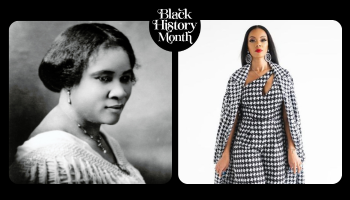As part of black history month, we remember playwright, poet and writer Langston Hughes.
Born Feb. 1, 1902, in Joplin, Mo., he spent his youth in Cleveland. While a teen at Central High School in 1917, Hughes lived in the attic of the home at 2266 East 86th Street after his mother and stepfather left Cleveland.
The city of Cleveland had condemned the home last June. But the Fairfax Renaissance Development Corporation hopes to renovate it. It was nominated by the Cleveland Landmarks Commission to be designated a landmark.
According to a Hughes biography written by Arnold Rampersad, Hughes wrote about the hard times he experienced while living at the home.
“I couldn’t afford to eat in a restaurant, and the only thing I knew how to cook myself in the kitchen of the house where I roomed was rice, which I boiled to a paste,” Hughes wrote. “Rice and hot dogs, rice and hot dogs, every night for dinner. Then I read myself to sleep.”
Hughes was known as one of the major figures of the Harlem Renaissance movement.
After he left Cleveland, he lived in New York and attended Columbia University for a year before he decided to go out to sea, which allowed him see to parts of Europe and Africa.
He later attended Lincoln University from 1925 to 1929.
He is known for numerous pieces of work, including his essay, “The Negro Artist and the Racial Mountain,” the play, “The Mulatto,” and the story, “The Way of White Folks.” One of his most popular works was a “A Dream Deferred.” Playwright Lorraine Hansberry used the line from the poem, “a raisin in the sun,” as the title of one of her plays.
Hughes died of cancer on May 22, 1967, in New York City. He was 65.
“My soul has grown deep like the rivers.
I bathed in the Euphrates when dawns were young.
I danced in the Nile when I was old
I built my hut near the Congo and it lulled me to sleep.
I looked upon the Nile and raised the pyramids above it.
I heard the singing of the Mississippi when Abe Lincoln went down to New Orleans, and I’ve seen its muddy bosom turn all golden in the sunset.”
from “The Negro Speaks of Rivers” (1920),
in The Weary Blues (1926)
















